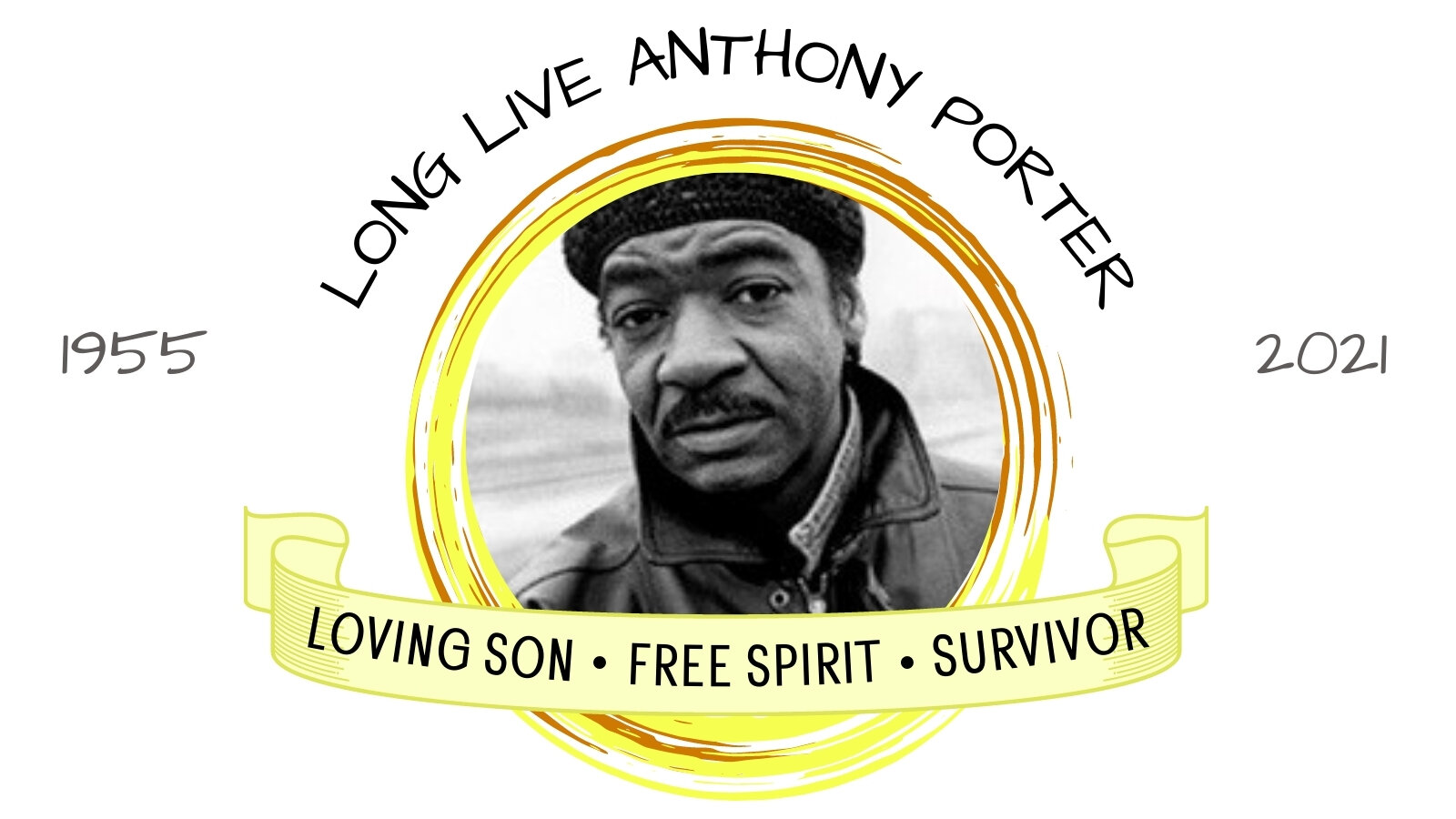Long Live Anthony Porter
Anthony Porter had a life beyond the incidents in which he crossed paths with police.
International Wrongful Conviction Day is October 2.
In early July, the news of Anthony Porter’s death left us heavy with a sense of grief, failure and responsibility. That collective grief was soon compounded by feelings of anger and frustration as we read reports on Anthony Porter’s passing in the media. The Chicago Sun Times article commenting on Porter’s death noted his landmark 1999 exoneration—one which helped abolish the Illinois death penalty—but said nothing of his character or life. Instead, the article ended by stripping Porter of his dignity in two sentences: “Porter was arrested in 2011 for stealing deodorant from a Chicago pharmacy. He pleaded guilty to retail theft and was sentenced in 2012 to one year in prison.”
The article, authored by the Associated Press, triggered the wounds of oppressive abuse and trauma held in our space, but also reminded us of a painful lesson. The violence and criminalization enacted upon our people doesn’t begin and end in police stations, courtrooms and penitentiaries. The harm and neglect perpetuated by the carceral state seeps past prison walls and is continued by many of the institutions that shape our daily lives. This includes journalists, legislators, business owners, and our neighbors.
If it is not immediately clear why the AP/Sun article was violent towards Porter and other incarcerated survivors, consider the pain of having your own life reduced to one desperate moment in print. Focusing on Anthony's actions in 2011 ignores the systemic and structural failures of the carceral system that abused and abandoned him, leaving him with no support or options long before he entered the pharmacy that night.
Anthony Porter had a life beyond the incidents in which he crossed paths with police. He was free-spirited and kept a sense of humor. His mother was his rock until her death soon after his release in 1999. He loved good food. He was a survivor of deep trauma at a time when resources were not widely available to treat it.
Many people who might have helped Porter over the course of his life did not. Porter was 27 years old in 1982 when he heard that his name was being tied to a double murder case. He went to the police station where, despite his protestations of innocence and the lack of physical evidence connecting him with the murders, he was beaten, arrested, and charged. His lawyer fell asleep during the trial. The attorneys that helped free Porter in 1999 neglected to connect him with support for his drug abuse and housing insecurity coming out of prison. Though lawyers sought his assistance over the years to help free other wrongfully imprisoned inmates, none helped him find stable housing and move out from under the CTA stop on 47th Street. When Porter stole deodorant from CVS in 2011, the manager refused to settle the issue even when someone offered to pay the four dollar tab for Porter. Instead the police were called, and Porter was charged with a felony.
The grief we feel at Anthony Porter’s passing—and that of all of our other loved ones—is also grief for the failures of our city and communities to support people like him. We can and must do better. Grief has a place in social movements.
Hold your local media outlets accountable in opposing institutionalized racism and violence. Advocate for the instrumentalization of repair in the form of state-sponsored reparations for police torture survivors. If you live downstate among legislators still upholding carceral logics, reach out to them to tell them you are not okay with that. Join us in practicing politicized healing.
People that are released from Illinois prisons, regardless of innocence or guilt, must be provided with respect and dignity, something that Porter did not get an opportunity to enjoy. Our criminal justice system as a whole must be held accountable for the neglect of those it incarcerates, especially those who have been left to carry the weight of their wrongful imprisonment.


